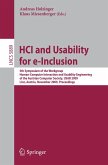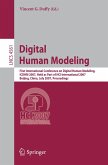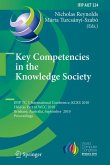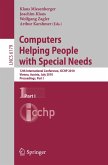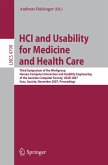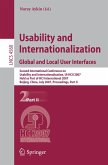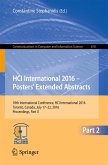The Workgroup Human-Computer Interaction & Usability Engineering (HCI&UE) of the Austrian Computer Society (OCG) serves as a platform for interdisciplinary - change, research and development. While human-computer interaction (HCI) tra- tionally brings together psychologists and computer scientists, usability engineering (UE) is a software engineering discipline and ensures the appropriate implementation of applications. Our 2008 topic was Human-Computer Interaction for Education and Work (HCI4EDU), culminating in the 4th annual Usability Symposium USAB 2008 held during November 20-21, 2008 in Graz, Austria (http://usab-symposium.tugraz.at). As with the field of Human-Computer Interaction in Medicine and Health Care (HCI4MED), which was our annual topic in 2007, technological performance also increases exponentially in the area of education and work. Learners, teachers and knowledge workers are ubiquitously confronted with new technologies, which are available at constantly lower costs. However, it is obvious that within our e-Society the knowledge acquired at schools and universities - while being an absolutely necessary basis for learning - may prove insufficient to last a whole life time. Working and learning can be viewed as parallel processes, with the result that li- long learning (LLL) must be considered as more than just a catch phrase within our society, it is an undisputed necessity. Today, we are facing a tremendous increase in educational technologies of all kinds and, although the influence of these new te- nologies is enormous, we must never forget that learning is both a basic cognitive and a social process - and cannot be replaced by technology.
Dieser Download kann aus rechtlichen Gründen nur mit Rechnungsadresse in A, B, BG, CY, CZ, D, DK, EW, E, FIN, F, GR, HR, H, IRL, I, LT, L, LR, M, NL, PL, P, R, S, SLO, SK ausgeliefert werden.



